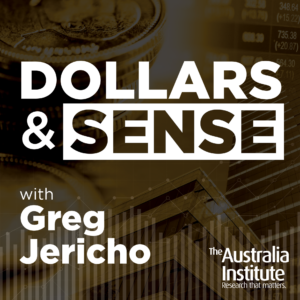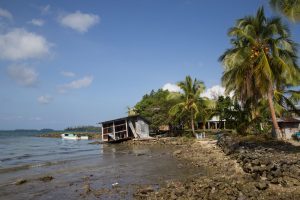March 2025
Poll: Trump a greater threat to world peace than Putin or Xi
More Australians consider US President Donald Trump a greater threat to world peace than Vladimir Putin or Xi Jinping.
February 2025
DOGE days: Trump’s war on the civil service
By laying off tens of thousands of federal employees, challenging the authority of judges and throwing erstwhile allies under the bus, the Trump administration is radically reshaping America and its role in the world.
Thrown under the bus: Ukraine abandoned by the Trump administration
Trump appears to want a quick and dirty end to Russia’s invasion, but at what cost to Ukraine and to America’s reputation?
It shouldn’t be this difficult to condemn plans to commit a crime against humanity
Australians, by and large, have seen America as an ally critical to our national security. But in just a few short weeks, Donald Trump has shown his administration is a threat to Australia and the world’s security. Australia may not be able to stop Trump from creating chaos, but we will undermine our own security if we don’t stand up for ourselves and for our values.
You get a tariff. YOU get a tariff!
And some of you get annexed (maybe).
Stop the steel
We discuss Trump’s new tariffs on steel and aluminium imports and what they’ll mean for Australia.
“A crime against humanity”: Trump’s intentions for Gaza
Trump’s proposal for the US to “own” Gaza and force out the Palestinian population would make it American policy to support “a crime against humanity”, says US foreign policy expert, Matt Duss.
Trump’s Gaza Grab | Between the Lines
The Wrap with Amy Remeikis On September 30, 1938 British Prime Minister Neville Chamberlain stood outside 10 Downing Street and declared the Munich Agreement had appeased German Chancellor Adolf Hitler’s territorial aims. “I believe it is peace for our time,” he said. “…Go home and get a nice quiet sleep.” Germany violated the agreement almost immediately.
Australia Must Support Palestinian Self-Determination and Facilitate Long-Term Peacebuilding in the Middle East
In the aftermath of the January 2025 ceasefire, the outlook for Palestinians remains dire.
Manifest destiny
We discuss US tariffs against its three largest trading partners, the political battle over who gets to be American, and Trump’s imperial ambitions.
January 2025
The hands of the Doomsday Clock show the world is ignoring a potential three-headed catastrophe
The apocalyptic “the end is nigh” was a popular meme for the image of despair and exclusion from the accelerating prosperity of America and the West.
For the Israel-Hamas ceasefire to be meaningful, an enduring peace must be the objective
When is a ceasefire not a ceasefire? When it is between Hamas and Israel, with Donald Trump as a late arrival to the treaty birthing suite in the role of midwife.
Victim-in-chief
The second Trump era has begun.
Australian leaders urge President Biden to pardon Julian Assange
A group of Australian leaders, including several Members of Parliament, have written to outgoing US President Joe Biden, urging him to grant a full and unconditional pardon to Julian Assange.
A world on fire
From threatening to annex Greenland to blaming California Democrats for the state’s deadly wildfires, the Trump circus is back in town – and he’s not even president yet.
Okay, it’s not ALL Greg’s fault
Just some things.
December 2024
Neighbour from hell – A Pacific plea to Anthony Albanese and Peter Dutton
A group of Pacific Island Elders, including two former leaders, have written an open letter to Australian Prime Minister Anthony Albanese and Opposition Leader Peter Dutton, urging them to stop approving new fossil fuel projects.
Kissing the ring
Don Watson joins us to discuss Trump’s beyond-bizarre cabinet selections, Joe Biden’s tainted legacy, and what this might all mean for Australia on the final episode of After America for 2024.
Our crisis of integrity looms in the Pacific
“An Albanese Labor government will restore Australia’s climate leadership, and listen and act on Pacific island warnings of the existential threat of climate change.” Despite a clear election campaign commitment to listen to Pacific Island nations and act on climate change, the Australian government continues to enable and encourage new and expanded fossil fuel projects. When it
Australia argues against developing international law to meet the unique existential threat of climate change
Australia was one of the first countries to present oral pleadings at the International Court of Justice (ICJ) overnight, as the court began to examine what countries are legally required to do to combat climate change and what is their responsibility to assist nations most affected.
Return to Trumpland with Zoe Daniel
Zoe Daniel MP joins us to discuss the MAGA loyalists Trump is tapping for senior roles and how Australia can deal with the President-elect.
November 2024
Making America pay
Trump says he’s going to make other countries pay with a sweeping new tariff regime – but in reality, everyone will lose.
Standing up to Trump with Malcolm Turnbull
Former Prime Minister Malcolm Turnbull joins the show to discuss how Australia should approach the second Trump presidency.
Toxic Trump ambitions could easily take hold in Australia
Strap yourselves in. Convicted felon Donald Trump has been re-elected president of the United States.
Fill the sky
With this presidential race now over, Emma Shortis reflects on an extraordinary campaign and the challenges that may lie ahead for Australia.
Four more years
Donald Trump will return to the White House – how should Australia prepare?
The AUKward truth about the US relationship
With its democracy under assault, America needs a friend, not a flunkey.
America’s greatest strength with José Ramos-Horta
His Excellency José Ramos-Horta, President of Timor-Leste and Nobel Peace Laureate, joins us to discuss why the United States will remain an economic powerhouse despite rising tensions with China.
October 2024
Ozymandias Revisited – The doomed conceit of AUKUS
Three years on, there is still no compelling argument, strategic or otherwise, for Australia’s acquiring eight Virginia class nuclear-propelled submarines (SSNs). Nor is there any compelling calculation of the large lick of funding – $368 billion and more – that the program will soak up. Only Defence seems able to command such stupendous outlays when
Is Australia ready for Trump 2.0?
We discuss the race in the key swing state of Michigan and whether Australia is really prepared for a second Trump administration.
General Enquiries
Emily Bird Office Manager
mail@australiainstitute.org.au
Media Enquiries
Glenn Connley Senior Media Advisor
glenn.connley@australiainstitute.org.au













